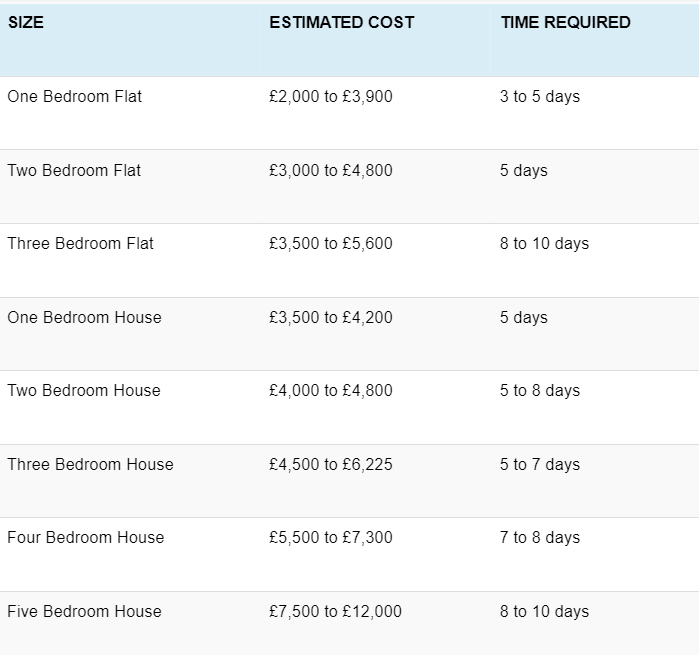Electrical house rewiring is a big project and there are many things to consider before doing any electrical work. This includes checks, planning, design and calculations among other things. Here is some information that should help you with knowing how to rewire a house and what is involved in this process.
Is It Worth Rewiring a House?
Rewiring a house is a great way to make sure that your home is up to date, energy-efficient, and safe.
When you rewire a house, you replace the old wiring with new wiring that's designed for modern needs. This can be done in a variety of ways, but it generally involves removing the old wiring from inside walls and ceilings and then replacing it with new wires that are insulated and have a protective coating.
The benefits of rewiring a house include:
- Improved safety: when wiring is properly installed, it will keep you safe from electrical shocks and fires.
- Lower energy bills: because newer wires are more efficient than older ones, they use less electricity which reduces your monthly bill!
- Improved home value: having updated wiring in your home can add value to its resale value.

How Often Does a House Need Rewiring?
A house should be rewired every 20 to 25 years, depending on the age of the home and how often it's been updated. The frequency of electrical rewiring depends on how many times you have updated your home, as well as the age of your home and the materials used in its construction.
Older homes tend to be built with older wiring that is less efficient than newer wiring. This can cause problems like short circuits and fires if not maintained properly.
If you are unsure about how often your home should be rewired, ask an electrician who can inspect your property for signs of wear or damage that could lead to problems down the road.
How Much Does It Cost to Rewire a House?
The cost of rewiring a house depends on many factors, including the size of the property and the complexity of the project. In general, however, it is a fairly expensive undertaking that requires significant planning and time.
The average cost of rewiring an average-sized house in the UK is around £2000 - £7000. This figure includes both materials and labour. However, this is only an average - the actual cost will vary depending on where you live and how complicated your project is. More detailed estimates can be obtained from electricians in your area. Here are the estimations of the full house rewire cost and required time for different house sizes:

Are House Rewire Grants Available in the UK?
Yes, you can get a grant to rewire your house in the UK. In fact, there are several grants available through the government to help you fund this project.
One of the most popular is the ECO Grant, which stands for Energy Company Obligation. This grant is meant to help people who live in houses that were built before 1960 and have not yet had their wiring replaced. It can be used for a variety of energy-efficiency upgrades, including having new wiring installed.
You can also apply for a Home Improvement Grant from your local council if you live in an area that qualifies for one. This grant is worth up to £3,000 and is intended to help homeowners make improvements that will reduce energy costs or improve energy efficiency.

What Does Rewiring a House Involve?
It's important to know what you're getting into before you start so that you know what to expect. Here's a quick breakdown of what rewiring a house involves:
An inspection: This will tell you which wires are still good and which ones need to be replaced. It will also help determine if any electrical work has been done improperly in the past, and whether or not it needs attention now.
Disconnection: In order for work to be done safely and effectively, all power needs to be disconnected from the house. This includes both electricity and gas lines. After this is done, it's time to take down any old panels or boxes that may exist in your walls as well as any light fixtures or outlets that may have been installed by an electrician in the past.
Installation: Once all of these preliminaries are out of the way, it's time for installation! In most cases this means installing new wiring into the walls of your house in order to replace old ones with newer versions that meet current building codes
Usually, a rewiring job should take five to seven days to complete but it depends on the size of the house and also on other factors.
In short, electrical rewiring normally includes:
- The removal of old wiring
- The installation of new wires and outlets
- The installation of new switches and lighting fixtures
- Testing that all works correctly before issuing an electrical certification.

How to Find Qualified Rewiring Electricians?
Finding a qualified electrician to rewire your house can be a bit of a challenging task. There are several things to consider when choosing a rewiring electrician, and it’s important to make sure that they have the right experience, skills, and credentials for the job.
The first thing you need to do is research rewiring electrician companies in your area. You can find them by searching online or in the phone book. You should look at their websites to see what they offer, as well as how long they've been in business.
Try calling local contractors who specialize in rewiring services and ask them for a quote. If you are based in South Wales consider hiring Highland Construction as we have a lot of experience in rewiring whether for commercial or residential purposes. We are able to deliver quality rewiring services in Cardiff, Newport Swansea, Bridgend and surrounding areas.


.jpg)
.jpg)
